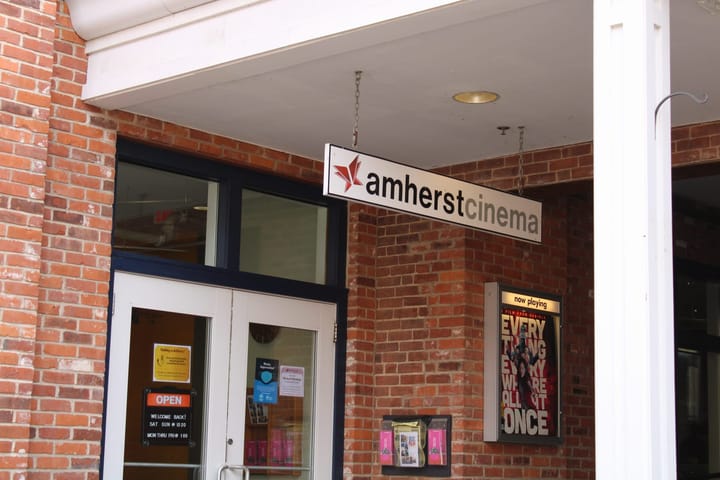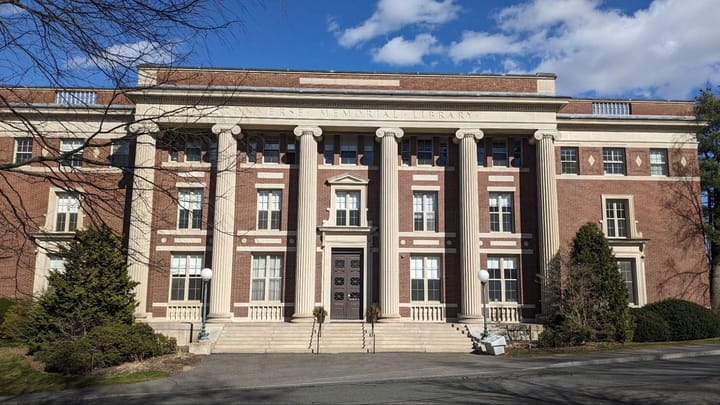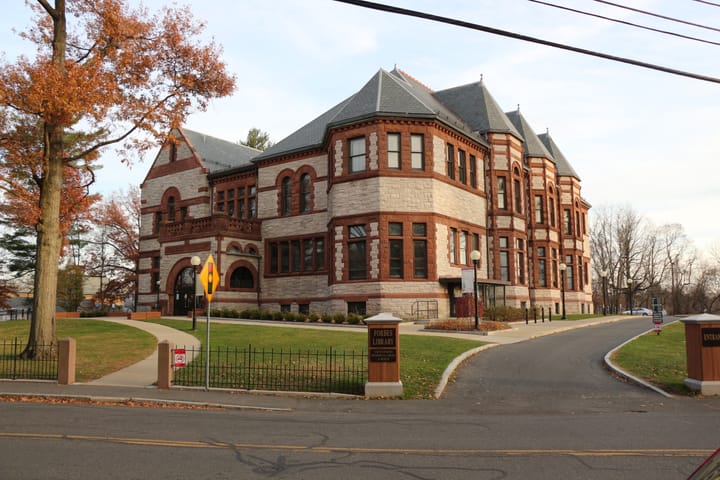College Sees Uptick in Covid-19 Cases in Second Week of Spring Semester
The college has had an uptick in coronavirus cases during the second week of Spring 2021 semester, with a total of 19 students in quarantine and four in isolation. In the week of Feb. 21, there have also been five staff cases and one faculty case.
Across the nation flagship universities — such as the University of Massachusetts, University of Maryland, University of Virginia and Providence College — have tracked alarming spikes in the number of viral on-campus cases, and Amherst is no different. Though the surge has not spurred any new safety measures, the college has reiterated restrictions through emails from administrators and the campus police.
The shock of the new cases came when an email from Chief of Police John Carter was received by the college community on Feb. 22. The message relayed that two students had received positive test results within a few hours of one another. Though they were both asymptomatic, they had had a total of 23 close contacts. All of those individuals were moved to quarantine housing (at the Rodeway Inn in Hadley) immediately. In the email, Carter called on students to exercise conscientiousness and personal responsibility as they continue to live on campus.
“The total number of close contacts for two positive test results is alarming,” he wrote. “While the contact tracing team believes that they resulted from separate, small-sized group interactions, the number of close contacts amplifies the need to be extremely diligent about masking and physical distancing,” he added.
Chief Student Affairs Officer Karu Kozuma reiterated this sentiment in an interview with The Student. He relented that stringent regulatory measures can be mentally taxing but urged students not to succumb to safety restriction burnout.
“We do understand that living within relatively strict boundaries is not easy or enjoyable, but the health and safety of our community is directly tied to every single community member adhering to the Covid-19 protocols.”
Kozuma is encouraged by the success of the community thus far, but he fears that students may not be as committed to following the rules in the upcoming weeks. “Our experience thus far is that the community is doing very well. As time passes, we all — students, faculty and staff — need to work very hard to not give in to fatigue and frustration and become complacent,” he remarked.
On Feb. 25, Dean of Students Liz Agosto sent a “clarifying message” to define the implications and punishments for Covid-19 rule violations. In the email she stated that students should be expected to be removed from campus if they miss one of the three weekly tests that are required. Once a student misses three tests in a four-week period they will be dismissed from campus.
The email also notes that reprimands and a referral to the Office of Community Standards will be issued to students who wear their face covering “improperly,” do not maintain a physical distance of at least six feet, or fail to complete their health survey.
The outlined rubric indicated that the following instances of non-compliance will result in immediate dismissal from campus: leaving campus without authorization, inviting a non-residential guest onto campus, failing to follow the rules of isolation after testing positive, failing to cooperate with, or be truthful with, contact tracers and failing to follow directives if a localized or campus-wide quarantine is implemented due to heightened campus alert.
“I share this information because, after a year, like you, I am tired and I want things to feel ‘easy’ again. I want to see my family and my close friends, to meet with students in person instead of over Zoom, to enjoy a meal without taking my mask on and off. And I know that you all want the same things,” Agosto said.
Many students report that they are no longer stunned by the Covid-19 updates. “At this point, I’m honestly surprised if a day goes by where I don’t get an email. There’s almost a numbing effect to receiving these updates all the time, but it’s still definitely concerning,” Annika Paylor ’24 said.
Noah Steciuk ’23 had similar feelings about the positive cases on campus. Steciuk is used to the emails from Carter. After reading that the college had two positive cases in one day, he said “I was not too worried, but very surprised when I saw that two people managed to have 23 close contacts.”
Haoran Tong ’23 is torn about the constant flood of Covid-related information, “I am in a constant dilemma of wishing to receive any news updates about Covid — the desire for information transparency — and not wishing to read any reports about positive cases — the desire for Covid safety. Still, as a [community advisor], after receiving the positive cases I feel an innate sense of powerlessness.”
Though there is general consensus about desensitization to emerging Covid cases, student opinion concerning the administration’s actions varies. Paylor, for instance, does not think that the administration is doing a great job balancing surveillance and trust. “The dynamic of having returning students in addition to new students unfamiliar with the Amherst Covid lifestyle has made this new semester difficult to navigate. In my experience people tend to [dramatize] what they hear going on around campus out of fear,” she said.
Paylor thinks that the administration can find better solutions to deal with Covid rule-breaking. “I feel that if Amherst loosened restrictions on campus things would definitely be better. People are going to gather on the weekends regardless of school policy, so if we can provide more tools to do this safely I think this would help solve the problem,” Paylor added.
Steciuk did not feel comfortable speaking about the administration’s decisions because he was afraid it would influence his employment status. “I’d prefer not to answer because I am an employee at the college and am worried about potential backlash,” Steciuk stated.
Tong believes that the administration-student relationship is dynamic and ever-evolving. “At different stages, the balance will tilt towards surveillance (active management of information) or trust (active management of community). The student Covid task force, among many other departments and centers, may serve as a check for over-tilting to each side. This is why I think it’s not only the administration’s business (despite that they are the ones who publish and enforce the decisions). I would like to say that trust in a community is not taken as given it is a process; it demands everyone to cultivate it,” he said.





Comments ()